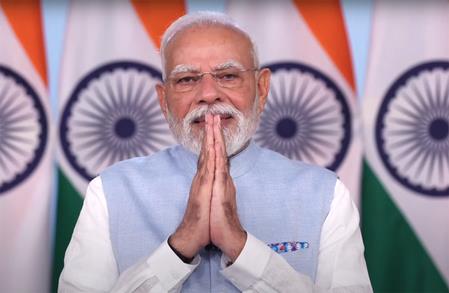
PM Modi Sends Strong Message On Cooperative Federalism To Achieve Self-Reliance
Apart from greeting people on the eve of 'Bachat Utsav' or 'Savings Festival' and inspiring them to prefer Indian products over foreign ones, PM Modi appealed to all state governments to actively support the Aatmanirbhar Bharat and Swadeshi campaigns.
“When the Centre and states move forward together, the dream of a self-reliant India will be fulfilled, every state will develop, and India will become a developed nation,” he said.
Seeking support from the state governments, PM Modi urged them to boost manufacturing in their regions with full energy and enthusiasm by creating a conducive environment for investment.
PM Modi's tacit stress on cooperative federalism is significant as the massive GST reforms introduced by the government in 2017 generated friction between states and the Centre due to disputes about revenue sharing, delayed compensation payments, loss of fiscal autonomy, and unequal decision-making powers in the GST Council.
On the eve of GST 2.0, PM Modi's call to states is also a reflection of the complexities of the new tax regime that has created a more unified national tax system but exposed the complexities of India's federal structure, where balancing state autonomy and central oversight remains difficult.
Earlier, PM Modi hailed the next-generation Goods and Services Tax (GST) reforms as historic and underscored the fact that the move will be a major step towards Aatmanirbhar Bharat.
"From sunrise on September 22, a new chapter in India's tax regime will begin," he said, describing the reforms as the beginning of a“GST Savings Festival” that will directly benefit the poor, the middle class, women, small businesses, and the youth.
“With these reforms, the savings of every Indian will increase, and people will be able to buy their preferred items more easily. This festive season, everyone's happiness will multiply,” he said, adding that the new GST structure would boost India's economic growth.
Reflecting on the journey of GST, the Prime Minister recalled the challenges before 2017, when India's tax system was entangled in a web of levies such as excise, VAT, and octroi.
"For decades, our citizens and traders were caught in the maze of dozens of taxes. Moving goods from one city to another meant crossing multiple checkpoints, filling endless forms, and paying arbitrary tolls. The burden ultimately fell on the poor consumer," he said.

Legal Disclaimer:
MENAFN provides the
information “as is” without warranty of any kind. We do not accept
any responsibility or liability for the accuracy, content, images,
videos, licenses, completeness, legality, or reliability of the information
contained in this article. If you have any complaints or copyright
issues related to this article, kindly contact the provider above.


















Comments
No comment